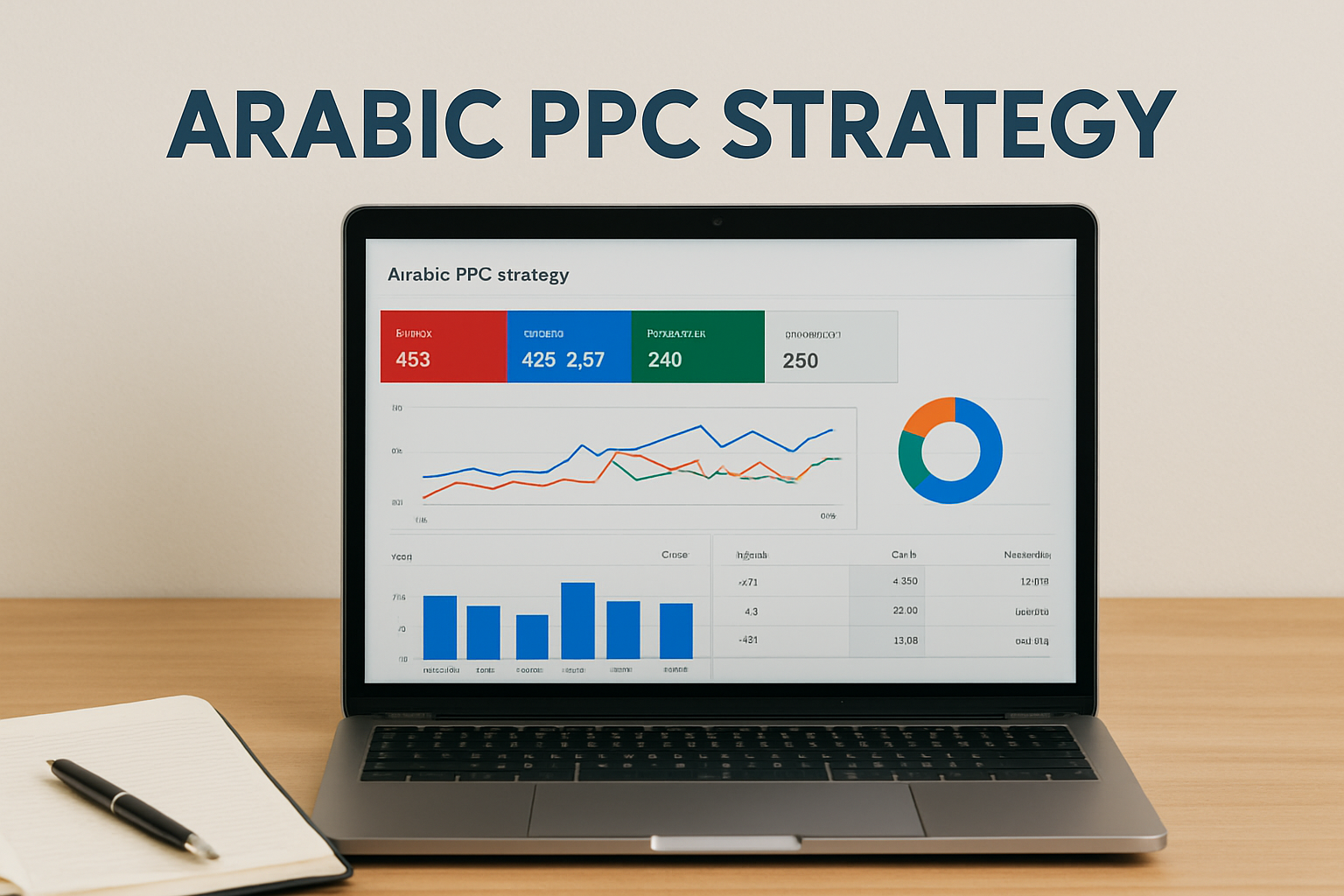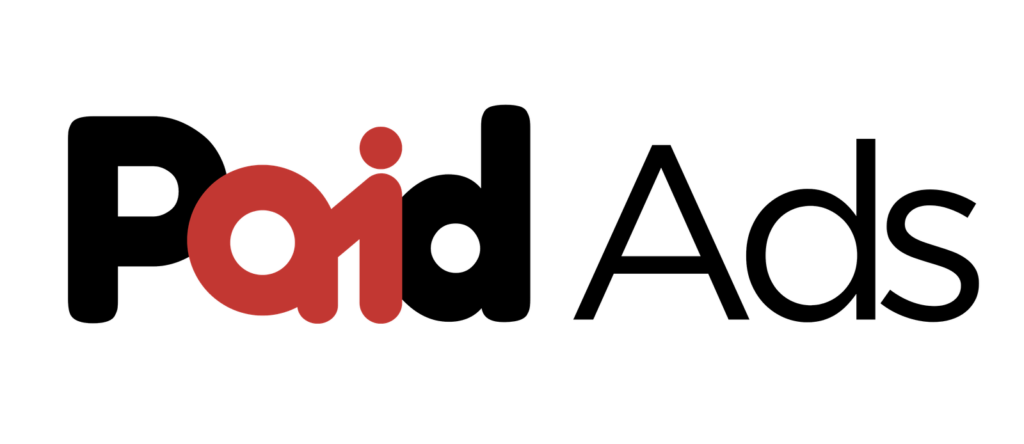This ultimate guide explains the Arabic PPC strategy in full detail—from beginner basics to advanced expert tactics. Whether you’re a small UAE business or a marketing agency looking to scale, this blog provides actionable strategies to help you reach and convert Arabic-speaking audiences through culturally relevant, geo-targeted, voice-friendly paid campaigns.
Arabic PPC Strategy to Reach 400M+ Arabic Speakers
Arabic PPC strategy is a powerful method to engage over 400 million Arabic-speaking users across the Middle East and North Africa (MENA). Paid ads in Arabic, when done correctly, outperform generic campaigns in both ROI and engagement.
Whether you’re in Dubai, Riyadh, or Cairo, the right Arabic PPC strategy can put your brand at the top of search results and customer minds.

What Is Arabic PPC Strategy?
Arabic PPC strategy refers to a specialized digital advertising approach that involves creating, managing, and optimizing pay-per-click (PPC) campaigns specifically tailored for Arabic-speaking users.
This includes:
- Keyword research in Arabic
- Culturally accurate ad copy
- Right-to-left (RTL) design formatting
- Localized geo-targeting within MENA regions
- Multi-platform presence: Google Ads, Meta, Snapchat, TikTok
Why it’s important:
- Over 70% of MENA users search in Arabic
- Lower CPC compared to English campaigns
- Higher engagement with localized ads
Step-by-Step Arabic Keyword Research for PPC
Arabic PPC strategy begins with accurate keyword research.
Tools to Use:
- Google Keyword Planner (Arabic language filter)
- SEMrush or Ahrefs (Low KD + High Volume)
- Ubersuggest (Long-tail in Arabic)
- AnswerThePublic (Arabic market voice queries)
What to Focus On:
- Local keywords like “Google Ads Dubai” or “Arabic ad agency”
- Long-tail keywords: “how to advertise to Arabs”
- Regional dialects: Gulf Arabic, Egyptian Arabic, Levantine Arabic
Example Keywords:
- “run ads in Arabic”
- “Arabic PPC services UAE”
- “Google Ads for Dubai businesses”
- “cheap PPC Arabic”
Arabic Keyword Research Comparison
| Tool | Feature | Arabic Support | Best Use |
|---|---|---|---|
| Google Keyword Planner | Keyword volume + CPC data | Yes | Initial research |
| SEMrush | Competitive analysis | Partial | Finding low KD terms |
| Ahrefs | Keyword difficulty + backlinks | Limited | Keyword expansion |
| AnswerThePublic | Voice query insights | Yes | Long-tail and voice optimization |
Ad Localization: Speak Their Language (Literally)
Key Aspects of Localization in Arabic PPC Strategy:
- Language: Use Modern Standard Arabic (MSA) or local dialects
- Direction: Ensure RTL (right-to-left) formatting in ad copy and landing pages
- Cultural Imagery: Avoid westernized visuals; use local, modest themes
- Tone: Arabic audiences respond better to respectful, professional tone
- Holidays: Align promotions with Ramadan, Eid, National Days, etc.
Sample Ad Copy Structure (Localized)
- Headline: “افتح متجرك الإلكتروني اليوم في دبي”
- Description: “ابدأ إعلاناتك الرقمية للوصول إلى جمهورك العربي وزيادة مبيعاتك مع PAIDADS.AE“
Localized ads increase CTR and lower bounce rate—boosting Quality Score and lowering CPC.

Bidding & Geo-Targeting in Arabic PPC Strategy
GEO Targeting Best Practices:
- Use Google Ads geo-targeting by city: Dubai, Jeddah, Abu Dhabi
- Layer audience segments: Income level, mobile usage, language
- Retarget Arabic users who visited Arabic content or pages
Bidding Strategies:
- Maximize Conversions: For ecommerce
- Manual CPC: Test different regions and keywords
- Target ROAS: For higher-ticket services (real estate, education)
Top GEO-Targeted Cities and Ad Platforms
| City | Platform | Language | CPC Trend | Audience Focus |
| Dubai | Google, Meta | Arabic | Medium | High-income buyers |
| Riyadh | Snapchat, TikTok | Arabic | Low | Gen Z + Mobile users |
| Cairo | Meta, Google | Arabic | Low-Medium | E-commerce shoppers |
| Abu Dhabi | Google, LinkedIn | Arabic | High | B2B & expat mix |
| Jeddah | TikTok, Meta | Arabic | Low | Fashion/Beauty focus |
Tracking, Analytics & ROI Optimization
Arabic PPC strategy doesn’t end at launching ads. Tracking and optimization ensure long-term success.
Key PPC Metrics:
- CTR: Measures engagement
- CPC: Tracks cost-efficiency
- CPA: Cost per conversion
- ROAS: Total return on ad spend
- Bounce Rate: Is your landing page engaging?
Optimization Workflow:
- A/B test headlines in Arabic
- Rotate creatives every 2 weeks
- Use Hotjar or Clarity for behavior heatmaps
- Retarget users who click but don’t convert
FAQs Asked by Arabic Marketers & Businesses
How do I start Arabic PPC strategy for my business?
Start by doing Arabic keyword research, localizing your ads, and setting your location targeting to your audience.
Are Arabic PPC campaigns cheaper than English ones?
Yes, CPC rates are often lower in Arabic campaigns, especially in Tier 2 cities.
Can I run Arabic PPC without speaking Arabic?
It’s possible, but you’ll need help from a native expert or agency like PAIDADS.AE for best results.
What platforms are best for Arabic PPC?
Google Ads, Meta (Facebook & Instagram), Snapchat, and TikTok work well for different demographics.
Does Arabic text affect ad approval on Google?
No, but you must follow ad policy and use proper formatting and clear language.
How long does it take to see results?
Usually within 2–4 weeks depending on your budget, optimization, and targeting accuracy.
Should I use Modern Standard Arabic or dialect?
Use MSA for wider reach. Use dialect in cities or regions for better engagement.
Ready to dominate the Arabic-speaking market?
Ready to dominate the Arabic-speaking market? Your audience is already searching—make sure they find you first.
At PAIDADS.AE, we specialize in high-converting Arabic PPC strategy, tailored to your brand, audience, and location.
✅ Native Arabic copywriting ✅ Hyper-localized keyword targeting ✅ Geo-based ad delivery ✅ Optimized for voice, mobile, and AI search
Start your Arabic PPC campaign today with a free strategy consultation at PAIDADS.AE — let’s turn searchers into loyal customers.





